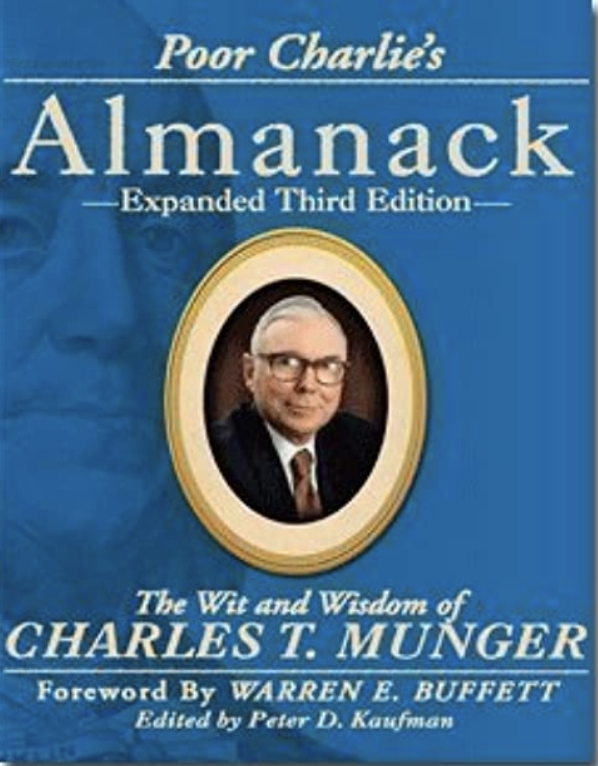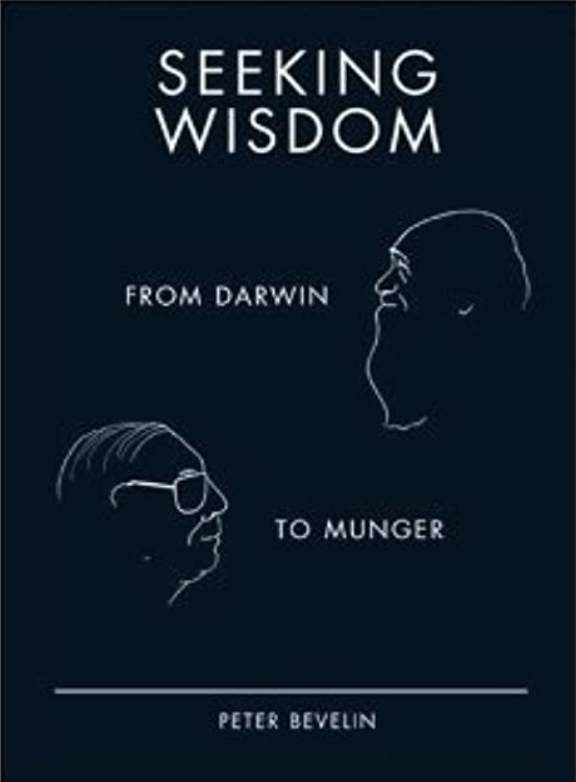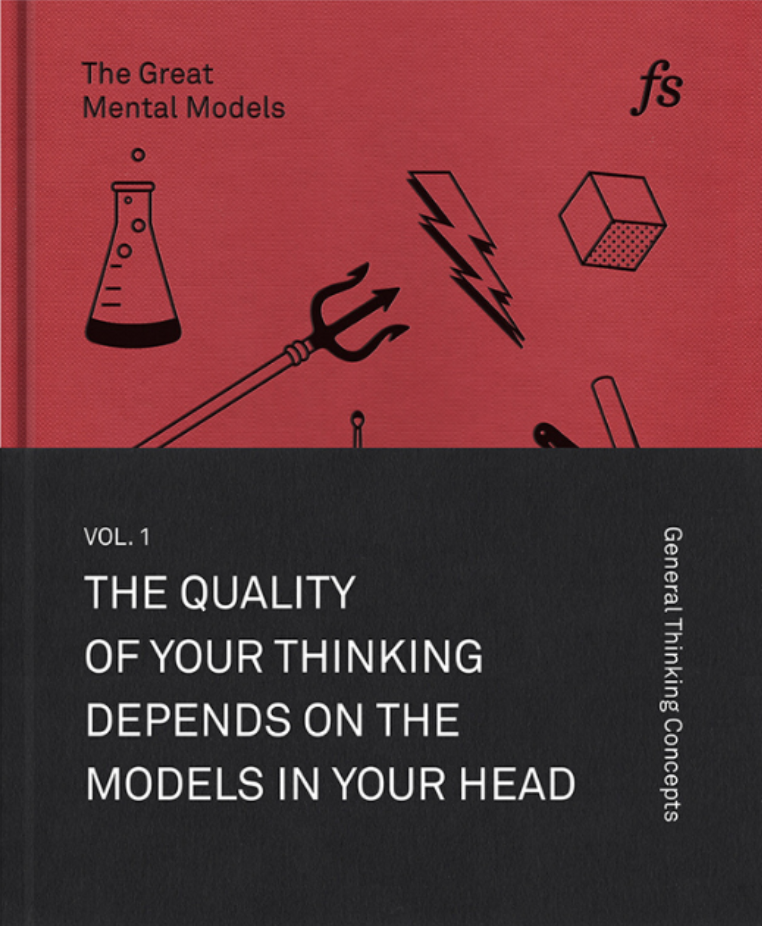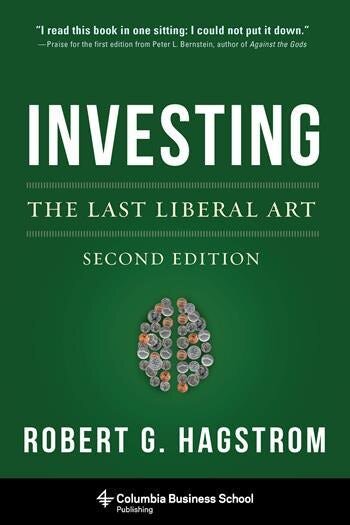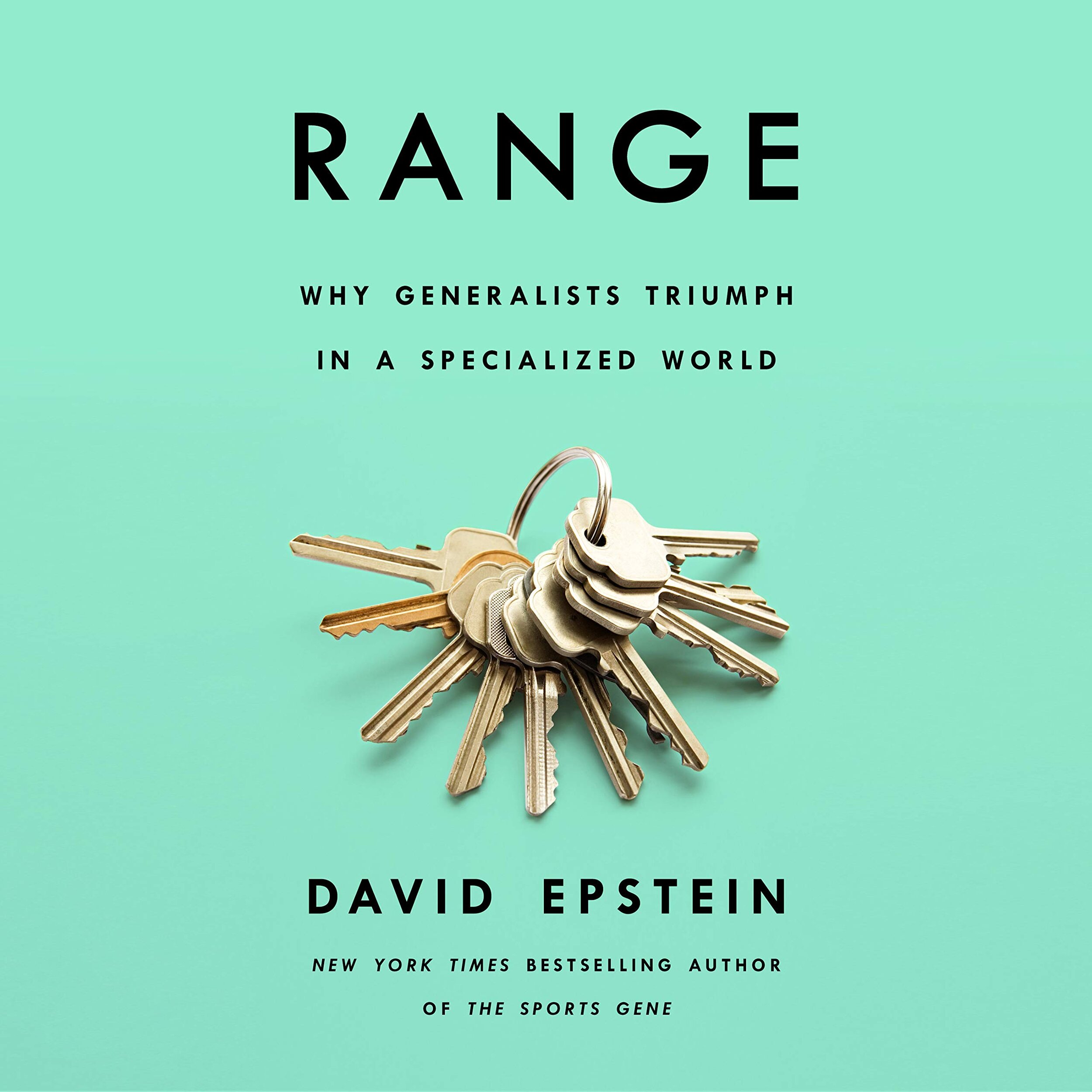Multi-Disciplinary Mindset
“We shall not cease from exploration. And the end of all our exploring. Will be to arrive where we started. And know the place for the first time.” T S Elliot
“The incessant concentration of thought upon one subject, however interesting, tethers a man’s mind in a narrow field.” Sir William Osler
“In a wicked world, relying upon expertise from a single domain … can be disastrous.” David Epstein
“Good decision making is pragmatic and eclectic. Oblique approaches rely on a tool kit of models and narratives rather than any simple or single account. To fit the world into a single model or narrative fails to acknowledge the universality of uncertainty and complexity.” John Kay
“I’m not mono-theoristic, I’m poly-theoristic. I don’t believe you should attempt to understand the whole world through a single mental model or map.” Rory Sutherland
“One good tool is rarely enough in a complex, interconnected, rapidly changing world. As the historian and philosopher Arnold Toynbee said when he described analysing the world in an age of technological and social change, ‘No tool is omni-competent.’” David Epstein
“A mental model is simply a representation of how something works. They are how we simplify complexity, why we consider some things more relevant than others, and how we reason. Using them increases your clarity of understanding, providing direction for the choices you need to make and the options you want to keep open.” Shane Parrish
“Investing is a multi-disciplinary game.” Li Lu
"The quality of our thinking is proportional to the models in our head and their usefulness in the situation at hand." Shane Parrish
“You have to know the big ideas in all the disciplines to be safe if you have a life lived outside a cave.” Charlie Munger
“When the world is changing so profoundly, it helps to have strong mental models for reference. Mental models must be flexible.” Baillie Gifford
“Equipping ourselves with a framework of evolving mental models that can be used to make intelligent decisions is an objective of our learning experience.” Christopher Begg
“Investment decisions are more likely to be correct when ideas from other disciplines lead to the same conclusions. That is the top most payoff – broader understanding makes us better investors… True learning and lasting success come to those who make the effort to first build a latticework of mental models and then learn to think in an associative, multi-disciplinary manner.” Robert Hagstrom
“Think of mental models as a mapping of reality which is messy and complex onto a simple structure which helps us make sense of the variations we see in the world. Mental models are just tools in a toolbox and the trick is to have as many of them as possible.” Helen Xiong
"Since no single discipline has all the answers, we need to understand and use the big ideas from all the important disciplines - mathematics, physics, chemistry, engineering, biology, psychology, and rank and use them in order of their reliability." Peter Bevelin
"So, if your professors won't give you an appropriate multi-disciplinary approach, if each wants to overuse his models and underuse the important models in other disciplines, you can correct that folly yourself." Charlie Munger
“Our core philosophy starts with the belief that making intelligent, rational decisions requires a multi-disciplinary framework that informs broad and deep understanding.” Christopher Begg
“You’ve got to learn everything. I started with physics and mathematics and I got into economics, history, law and politics. I like everything and that’s what you need. You might need models from biology.” Li Lu
“Reading about different disciplines only adds to your investment process. It’s something I’ve probably done later in my career than I should have.” Munib Islam
"The Munger system for dealing with reality is to have multiple models in the head, and then run reality against multiple models. I think it’s a perfect disaster to look at reality through just one model or two. There’s an old proverb that says, 'To the man with only a hammer, every problem looks pretty much like a nail.' And that is not our system. So I can’t sit here and run through all the models in my head, even though there aren’t that many. But multiple models is the game." Charlie Munger
“If I’ve learned anything over the past decade it is this: The art of stock picking is more about synthesizing information across disciplines and making decisions than a strict devotion to finance.” Allan Mecham
“What is elementary, worldly wisdom? Well, the first rule is that you can't really know anything if you just remember isolated facts and try and bang 'em back. If the facts don't hang together on a latticework of theory, you don't have them in a usable form. You've got to have models in your head. And you've got to array your experience – both vicarious and direct – on this latticework of models.” Charlie Munger
“Discovery is one of the joys of life, and in our opinion, is one of the real thrills of the investment process. The cumulative learning that leads to what Berkshire Hathaway Vice-Chairman Charlie Munger calls ‘Worldy Wisdom’. Worldly wisdom is a good phrase for the intellectual capital with which investment decisions are made and, at the end of the day, it is the source of any superior investment results we may enjoy.” Nick Sleep
"Some people think in words, some use numbers, and still others work with visual images. I do all of these, but I also think using models." Ed Thorp
“By constantly practicing and adding to our mental-model toolkit, we can (hopefully) continually expand our advantage over those who never curate such a toolkit.” Chris Sosin
“The only antidote for being an absolute klutz due to the presence of a man with a hammer syndrome is to have a full kit of tools. You don’t have just a hammer. You’ve got all the tools. And you’ve got to have one more trick. You’ve got to use those tools checklist-style, because you’ll miss a lot if you just hope that the right tool is going to pop up unaided whenever you need it. But if you’ve got a full list of tools, and go through them in your mind, checklist-style, you will find a lot of answers that you won’t find any other way.” Charlie Munger
"Your models will — if you’re paying attention, your models will be somewhat better the more years you’ve spent really observing and not just trying to make everything fit into what you saw the first few years." Warren Buffett
“You have to be naturally interested and curious about everything – any kind of businesses, politics, science, technology, humanities, history, poetry, literature, everything really effects your business. It will help you. And then occasionally you will find a few insights out of those studies that will give you tremendous opportunities that other people couldn’t think of.” Li Lu
“You’ve got to mesh many different disciplines into one. That’s our edge.” Marc Lasry
“When .. we have enticed the college graduate into our graduate schools, we at once encourage him to grow professional blinders which will confine his vision to the narrow research track, and we endeavour – often successfully – to make out of him a truffle-hound, or if you prefer, a race-horse, finely trained for a single small purpose and not much good for any other” Jacob Viner 1950 …. Viner argued that academic departments needed to encourage their students in broader intellectual fields since solving real world problems was likely to involve skills learned in several different disciplines. Charlie Munger, long-time Vice Chairman of Berkshire Hathaway, has encouraged a similarly multi-disciplinary approach to investment, a proposal which Marathon has consistently echoed.” Marathon Asset management
“For some odd reason, I had an early and extreme multi-disciplinary cast of mind. I couldn’t stand reaching for a small idea in my own discipline when there was a big idea right over the fence in somebody else’s discipline. So I just grabbed in all directions for the big ideas that would really work. Nobody taught me to do that; I was just born with that yen.” Charlie Munger
“You have to realize the truth of biologist Julian Huxley’s idea that ‘Life is just one damn relatedness after another’ So you must have the models, and you must see the relatedness and the effects from the relatedness.” Charlie Munger
“I have been in the business since 1973, so I have been looking at companies for a long time. There are a lot of things in my head. There are a number of different models of the kinds of business or situations that can work. It may be the local monopoly concept, the low-cost commodity producer concept, the consolidated industry that has come down to a few competitors, a basic essential service that isn’t going to stop growing, or an industry that may be growing too slowly to attract any competition. So, there are a lot of different models.” Glenn Greenberg
"We don’t really use screens. Instead, we use ‘mental models’ which help us find good investments. Some examples of these are the capital cycle, the power of incentives and insider ownership." James Seddon, Hosking Partners
“Mental models are what we use to see opportunity and act with more conviction more quickly.” Yen Liow
“It’s kind of fun to sit there and out think people who are way smarter than you are because you’ve trained yourself to be more objective and more multi-disciplinary. Furthermore, there is a lot of money in it, as I can testify from my own personal experience.” Charlie Munger
“Charlie Munger’s long record of success is an extraordinary testament to the multi-disciplinary approach. For Munger, a mental model is a tool—a framework that helps you understand the problem you face.” Michael Mauboussin
"If you have the patience and if you have the interest to really dig deep, then what you're going to find is if it's commonly held information or known information, you may come up with insights that others have not. This is what Charlie Munger talks about the latticework of mental models. You look at things through a different lens to try to see what can be different." Mohnish Pabrai
"Professor Newcomb taught [me] not only political economy, but philosophy, logic ethics, and psychology - all in one course. Today these subjects would be fragmented among several professors. I believe there was considerable advantages in being taught all these subjects by the same man. Too many educators seem to have forgotten that you cannot teach good economics, good politics, good ethics, or good logic unless they are considered together as parts of one whole. Colleges as a rule teach economics badly. With over-specialisation has also come a tendency to mistake information for education, to turn out ‘quiz experts’ who are crammed full of useful detail but who have not been trained how to think." Bernard Baruch
"It's a multi- disciplinary habit that fosters some creative thinking. Throughout the week between conversations about business - specific objectives we will tend to revisit further questions and insights somebody has read on the subject. Subjects are typically in the large data sets of physics, biology, and human history." Christopher Begg
"At its heart, investing is a multi-disciplinary endeavour. Thus, one has to know a little about everything to make informed decisions." Jake Rosser
"Our expectations of the future are derived from our mental models of how the world works, and every event is an opportunity to learn and improve those models." Philip Tetlock
“The important thing with the (mental) models is that they tell you that the world works differently than you would think the world works. And that's what gives you an edge.” Mohnish Pabrai
"There's no rule that you can't add another model or two even fairly late in life. In fact, Ive clearly done that. I got most of the big ones quite early [however]." Charlie Munger
“A lousy way to do memory prediction is X happened in the past, therefore X will happen in the future. It’s too based on specific circumstances. What you want is you want principles. You want mental models. The best mental models that I have found have come through evolution, game theory, and Charlie Munger. He has tons and tons of great mental models. Nassim Taleb has great mental models. Benjamin Franklin had great mental models. I basically load my head full of mental models. Different ones apply to every situation.” Naval Ravikant
“I like to think I’m always improving the craft. I’ve taken some good things from many different activities; finance, accounting, the arts, or engineering or history, or psychology - you can use a lot of good lessons from all those human activities and try to synthesize kind of a global mind that has a lot of ways of seeing the world.” Francois Rochon
“By definition, this is going to be a game which you play with multiple techniques and multiple models, and a lot of experience is very helpful." Charlie Munger
“The mental models approach seeks to assemble a box with many tools. The idea is to learn the big ideas from many disciplines. What are the main ideas from psychology? Sociology? Linguistics? Anthropology? Biology? And on and on. In many cases you don’t have to be a deep expert to get leverage from a big idea.” Michael Mauboussin
“You must think in a multi-disciplinary manner. You must routinely use all the easy-to-leqarn concepts from the freshman course in every basic subject. Where elementary ideas will serve, your problem solving must not be limited, as academia and many business bureaucracies are limited, by extreme balkanization into disciplines and subdisciplines, with strong taboos against any venture outside assigned territory.” Charlie Munger
“Certain character traits encourage the mental-models method to blossom. Fortunately, these are mostly traits you can choose: intellectual curiosity, integrity, patience, and self-criticism. Problem-solving success is not just a matter of IQ. As Munger notes, the great naturalist Charles Darwin’s worldview changing results reflect more his working method than his raw intellect. On the flip side, examples abound of smart people making bad decisions, often showing inflexibility or a failure to appreciate psychology’s lessons.” Michael Mauboussin
“Using mental models is a helpful short-cut to assess whether parallels between a successful investment and a new investment may exist. While mental models will not always discern a potentially successful investment given the importance of management execution and the entry price, they are a good lens through which to spot parallels.” Jules Mort, Hosking Partners
“It’s important to us as long-term investors to seek insight and wisdom from beyond the conventional sources on which our industry relies, and to develop mental models and perspectives that are far removed from the reductive limitations of the Capital Asset Pricing Model or the CFA Institute.” Baillie Gifford
Further Reading:
‘How to Build a Better Investing Mind,’ Investment Masters Class. 2017.
‘A Lesson on Elementary, Worldly Wisdom As It Relates To Investment Management & Business’. Charlie Munger. USC Business School. 1994, [via James Clear].
Suggested Books:


